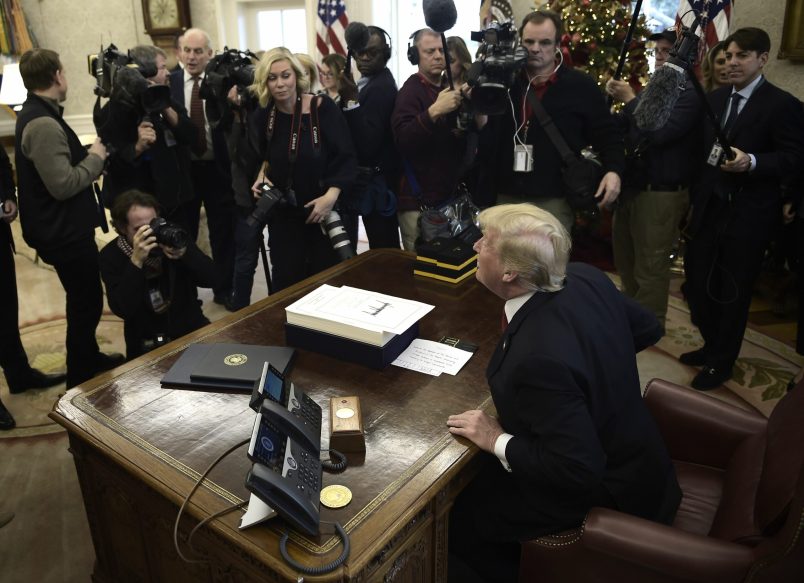A federal judge partly upheld a subpoena that House Democrats issued for former president Trump’s tax records, ruling that a Supreme Court decision last year rendered portions of the subpoena unenforceable.
U.S. District Judge Amit Mehta for the District of Columbia ruled that Trump’s accountant, Mazars USA LLP, must turn over the former president’s tax records covering the years 2017 and 2018. The decision spans a period of time beginning when he entered office and concluding when the subpoena was issued.
But Mehta, relying on Supreme Court precedent, rejected the parts of the subpoena that asked for tax records going back to 2011.
It’s a ruling that leaves a Groundhog Day-like feeling: House Democrats have been litigating this subpoena, and others, since spring 2019.
At first, Mehta granted the subpoena in full, issuing a scathing opinion in May 2019 which found the request valid.
Trump’s attorneys appealed that decision up the chain. Last year, the Supreme Court created a new test for subpoenas issued by Congress, mandating that courts “take adequate account of the significant separation of powers issues raised by congressional subpoenas for the President’s information.”
Mehta, in issuing the Wednesday ruling, made explicit note of that requirement.
“The court cannot now go so far,” Mehta wrote, referring to his earlier ruling that upheld the subpoena in full.
He wrote that the House Oversight Committee, now chaired by Rep. Carolyn Maloney (D-NY), had not asserted an adequate legislative purpose for Trump’s personal and corporate financial records to justify the subpoena’s broad scope, under the Supreme Court’s new requirement.
The subpoena demanded information relating to three areas on which Congress could legislate: presidential conflicts of interest, oversight of federal leases with the Trump organization, and the Constitution’s Emoluments clause.
Mehta found that while the subpoena was valid as far as it asks Mazars for documents relating to federal leases and potential Emoluments violations, asking for records about conflicts of interest was too broad.
For conflicts of interest, Mehta ruled that the request was not necessary for Congress to consider legislation and that it threatened the separation of powers – imposing the Supreme Court’s new test.
“The more Congress can invade the personal sphere of a former President, the greater the leverage Congress would have on a sitting President,” the opinion reads. “And the greater the leverage, the greater the improper ‘institutional advantage,’ id. at 2036, Congress would possess over a co-equal branch of government.”
After two years of litigation, Trump’s attorneys can still appeal the ruling, as can the House.
Read the ruling here:



